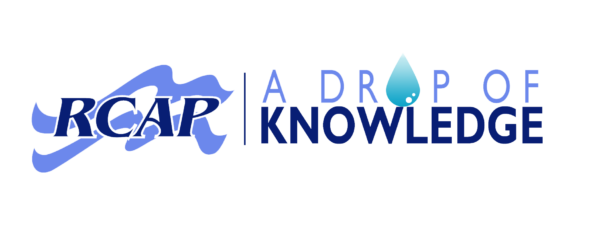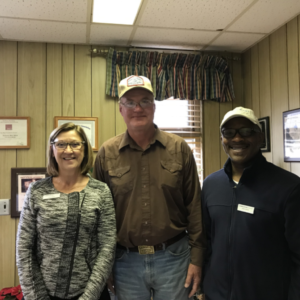Becoming Compliant During the COVID-19 Crisis

The small town of Autaugaville lies in the heart of Alabama. The town is located in Autauga County, which took its name from the Native American tribe that occupied the area. The county was established around 1818, and the town of Autaugaville was incorporated about 21 years later.
The town has a population of approximately 1,400 people and a utility system that services 533 water connections and 233 wastewater connections. The Autaugaville Water System was having issues keeping in compliance with certain state regulations. The issues were noted during routine inspections from the Alabama Department of Environmental Management (ADEM).
ADEM knew Autaugaville needed guidance in bringing its water system back into compliance, so they called Communities Unlimited for assistance (CU). Communities Unlimited is the southern RCAP partner.
Meeting with the Mayor
Communities Unlimited was first referred to Autaugaville in early December 2019, after ADEM reported that the water system had non-compliance issues related to monitoring and reporting violations of the Lead and Copper Rule. Around the time Communities Unlimited began coordinating with the town’s mayor, the Autaugaville water operator took a training class offered by Communities Unlimited on proper maintenance methods for small water and wastewater systems.
The water operator contacted the mayor and praised Communities Unlimited, convincing the mayor that CU could help the town with its water compliance issues. The mayor agreed to meet with CU, along with the water operator, in late December. The officials laid out the issues and concerns for the water system, and Communities Unlimited said it was prepared to help.
During inspections by ADEM, other non-compliance issues were found within the system. The list from ADEM noted several deficiencies including the need for the Autaugaville water system to evaluate the security of their facilities and to update their Risk and Resiliance Assessment and Emergency Response Plan. They also needed to develop a system map and to initiate a schedule for tank and hydrant inspection and maintenance program.
Despite the increased workload, Communities Unlimited hit the ground running to assist Autaugaville in bringing its water system back into compliance and to address the deficiencies noted by ADEM’s sanitary survey.
Communities Unlimited began with a Technical, Managerial and Financial Assessment (TMF) to evaluate the current state of the water utility. It was found that the mayor had a decent grasp of the financial and managerial necessities for the water system. Still, work would be needed on the operations and maintenance aspects to keep the system in compliance.
Following the deficiencies found during the TMF Assessment, Communities Unlimited developed a community technical assistance work plan, which delineated a scope of technical assistance and training solutions to address Autaugaville’s problems and achieve the outcome of bringing this small municipal water system back into compliance with the Safe Drinking Water Act.
Responding to a pandemic
Just as the work was ramping up, it was brought to a temporary hiatus as the COVID-19 crisis caused shutdowns in business travel in March 2020. Travel to communities was halted to protect both local officials and essential water system staff members in addition to Communities Unlimited employees.
With in-person site visits temporarily suspended, Communities Unlimited quickly adapted to continue serving clients and communities by employing virtual assistance through web-based video conferencing with Autaugaville and other communities that CU serves.
As the COVID-19 crisis unfolded, Communities Unlimited responded by providing a variety of tools and explanations to assist communities and small businesses working to understand the rapid-fire responses from the government. Communities Unlimited created a Frequently Asked Questions (FAQ) page to explain how the Families First and CARES acts would affect small businesses and rural communities, including water and wastewater systems like Autaugaville.
Communities Unlimited also dissected the laws and created the Small Business Toolkit, an interactive spreadsheet that told businesses and rural communities what laws and programs would work best for them. Links to the new tools and explanations of their use were sent to Autaugaville officials to assist them through the COVID-19 crisis. Communities Unlimited continued to work with the water utility on technical assistance and training tasks pursuant to the Autaugaville Technical Assistance Work Plan.
One issue to address was the need for board and staff training. In-person training was not available due to the pandemic, but Communities Unlimited found ways to deliver what was needed. Communities Unlimited provided resource materials and self-study assignments to the mayor and city council members, then followed up with phone calls to address any issues along the way. In addition, Communities Unlimited transitioned its in-person training online. The move allowed training to continue without endangering those in the community or at CU, and has generally resulted in an increased number of participants who can engage in this web-based training from the safety of their own homes.

(left to right) Dinah Foreman, CU, Lee Pittman, Autaugaville opetator, Alfred Jackson, CU
Assessing the Impact
Between May 1-15, 2020, the Rural Community Assistance Partnership (RCAP) asked its partners nationwide to survey their communities in each state to determine the economic impact of COVID-19 on rural and tribal water and wastewater utilities.
Communities Unlimited, the Southern RCAP, was able to survey communities from each of the seven states it serves. One of those survey participants was Autaugaville.
One of the survey questions was whether utilities saw an increase in delinquent accounts due to customers’ financial hardships. There were also questions about whether late fees were still being issued, and whether personnel absenteeism was an issue.
Autaugaville answered the questions, and found that most customers kept up their payments, and personnel were still reporting to work. Not only did the answers assist the larger survey, they also showed that the work plan initially set out for the water utility could continue without significant interruption.
Autaugaville’s answers became part of the final survey results, which can be found online at https://www.rcap.org/news/covid19impact/.
With technology-based methods in place for communication and training, Communities Unlimited has quickly adapted to protect the health and safety of client communities and staff while continuing to meet the mission and goal of assisting small communities and businesses throughout their seven-state geographical area. CU’s continued work with Autaugaville is expected to be completed within the next few months with the outcomes of improved public health, regulatory compliance, and improved managerial capacity.
RCAP regional affiliates including Communities Unlimited have quickly transitioned to adapt to utilizing new techniques, tools, and processes during the COVID-19 pandemic crisis to continue to implement outcome-based technical assistance and training to rural communities across the United States.

